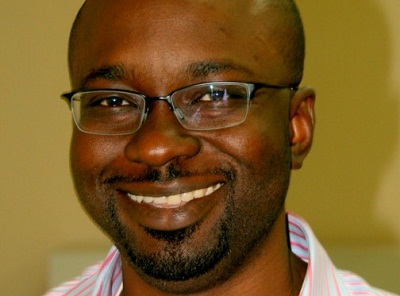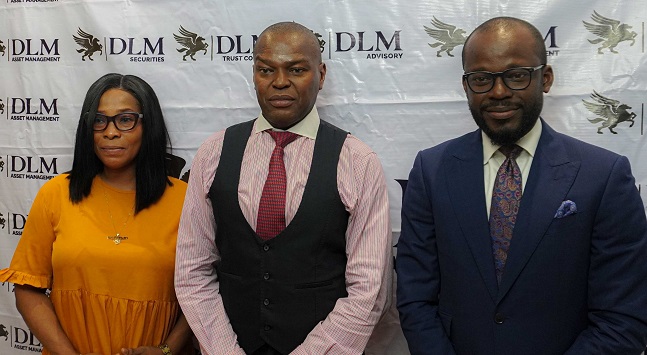E-Financial
MM Schemes Achieve N300m in January

Transactions across the various mobile money (MM) schemes in the country hit a record N300 million as at the end of January, underscoring a tipping point in the shift towards the cashless society, Nigeria CommunicationsWeek can now reveal.
The value was achieved in over 12,000 transactions and did not include transactions carried out within individual networks.
Though, a marginal increase of N50million over the value for November last year when value stood at N250million exchanged in 10,000 deals; it however showed the increasing ability to replace cash with digital money transferred via mobile phone.
Nigeria CommunicationsWeek gathered that the ability of a mobile money user of a mobile scheme to send money directly to the wallet of a user on any other service provider was made possible by connectivity service being provided by National Central Switch (NCS) that is offering the handshake.
Without interconnectivity the difficult decision of which mobile money service to choose might be influenced by which members of the customer’s peer group are already using a given service.
Emmanuel Okoegwale, Principal Associate, MobileMoneyAfrica, said, that there are only 47 Mobile Money deployments in West Africa out of 100 deployments in Africa.
According to him, Africa continent has shown great promise in the mobile financial services sphere but yet grapples with millions that are actively unbanked across all regions.
“Financial inclusion has become the buzz word within the regulatory, policy, financial, innovators, and technology circles and in the formal financial services space but significant barriers still stand in the way of reaching the bottom of the pyramid in Africa.” He added.
Okoegwale however stated that: “Nigerians should expect a much more aggressive roll out of services as collaborations deepen between licensed providers and Mobile network operators and other industry ecosystem players as we have seen with MTN / Diamond bank.
He also said that “Affordable and stable mass access channels like USSD and STK becoming more available and cheaper to use which in turn will scale up adoption since mobile money is a mass market product and should be immediately compatible with all mobile devices. Agency growth and spread will be the most significant achievement in 2014 as more formal retail distribution outlets step into mobilemoney and agency banking services to lower their transaction cost and reduce cash at hand in their outlets. Generally, the outlook for mobilemoney in 2014 is positive and encouraging based on the developments that we recorded in 2013”.
According to him, a recent report released by African Development Bank, on Financial Inclusion in Africa, finds that technological advances such as mobile money innovations have started to make inroads into banking the unbanked in Africa, with 14% of adults reporting they have used it in the past 12 months in comparison to less than 6% of adults in all other regions globally that used mobile money in the past year.
The African Development Bank predicts technology could be a “game changer” in drawing the financially excluded into the formal banking world.
Brian Larsen, Managing Director, Chams Mobile, identified major challenge of mobile financial services as network connectivity that has lead to both high costs for each transaction and high fixed IT costs.
He explained that current financial schemes such as mobile banking depend on network connectivity, making the network indispensable.
Chalapathi Rao Immidi, director, Business Development, mFino, said financial inclusion helps to make basic, essential services and utilities like energy, health, education, and water more accessible to people at the bottom of the economic pyramid.
“Access to affordable financial services helps in overcoming poverty, reducing income disparities, and contributes towards overall social and economic development,” he said.
According to him, some of the barriers to adoption of Mobile Financial Services include limited interoperability, where less than 20% of the products are fully or partially interoperable. Stringent regulation, where there is need to provide status for electronic transactions, flexibility in the application of CDD requirement for technology base solutions.
It would be recalled that transactions among mobile money schemes commenced in March last year after the expiration of the deadline of February 28 Central Bank of Nigeria (CBN) gave to operators to connect to National Central Switch (NCS) that is offering the handshake.
Presently, there are 16 companies licensed by CBN to operate mobile money transactions.
The CBN had said that the MMOs were licensed to accelerate the transformation of the nation’s payment system which would emphasis use of mobile phones.
E-Financial
Sofri Microfinance Bank Rejig Digital Platforms for Better Customer Experience

Sofri microfinance bank plans a massive rollout of Point of Sale, PoS terminals for merchants and agency banking in the third quarter of this year.

This is coming against the backdrop of the banks revamp of its digital platforms to support better customer experience.
Paul Adebayo, managing director, Sofri Microfinance Bank, said the bank is technology and purpose-driven, with focus on financial inclusion and sustainability. As well with the determination of making banking simpler, inclusive, and impactful.
He said that the revamped mobile app features, faster onboarding, cleaner interface, real-time alerts, enhanced security and seamless loan applications.
“Our corporate internet banking Launched for SMEs and institutional clients features, secure payments, transfers, account management and enhances business banking experience.
“Laying the groundwork for greater reliability, product innovation and operational efficiency is our new core banking infrastructure. This change enables us to scale faster and serve customers better.
“Our Terminal Management System (TMS) improves the performance, uptime, and remote monitoring of our POS terminals. This ensures merchants and field agents enjoy better stability, quicker settlements, and stronger support,” he added.
On sustainability impact, Adebayo, added that Sofri Microfinance bank is embedding ESG principles into its lending and operational models — from offering green financing options, to supporting waste-to-wealth entrepreneurs, and making inclusive finance part of Nigeria’s circular economy.
Sofri is a trademark of Links Microfinance Limited (Links Mfb). Links Mfb is licensed and regulated by Central Bank of Nigeria (CBN) and deposits insured by the Nigeria Deposit Insurance Corporation (NDIC). Links Mfb is a member of DLM Capital Group, owners of DLM Asset Management as regulated by the Securities and Exchange Commission (SEC).
E-Financial
DLM Group Unveils Innovative Sovereign Bond Backed Composite Notes

Current market research has confirmed that buyside investors are increasingly focused on high-growth sectors such as small businesses and consumer lending— sectors that fuel both the demand and supply sides of the economy.

However, capital allocation to these areas requires robust risk mitigation frameworks to preserve principal and ensure returns that are not just economically viable but outpace inflation.
Against the backdrop that DLM Capital Group has developed an innovative solution – the Sovereign Bond Backed Composite Notes (SBCNs) to meet this critical economy needs.
According to Sonnie Babatunde Ayere, the Group CEO of DLM Capital Group, “We believe that the consistent issuance of SBCNs by qualified entities will play a key role in de-risking corporate bond portfolios.
“By blending sovereign-backed security with enhanced yield exposure, portfolio managers gain a rare opportunity to simultaneously increase portfolio safety and performance”.
The first of its kind fixed income product combines the security of direct sovereign bond-backed principal protection, such as FGN Bonds, with the enhanced yield potential of corporate and consumer lending cash flows. This hybrid structure, the first of its kind in the local market, merges public-sector credit safety with private-sector income generation.
The instrument is designed as such that the private sector credit tranche will be secured by the FGN-bonds, which will be the senior tranche.
The N30 billion Sovereign Bond Backed Composite Notes issued by DLM Funding SPV Plc is being packaged as a AAA-rated note. With a held-to-maturity yield of 49.9 percent, the notes are designed to be attractive to institutional investors seeking a balance between capital preservation and superior returns.
Sonnie Babatunde Ayere, noted about the SBCN, “For asset managers, it enhances portfolio quality, improves credit profiles, supports diversification, and delivers competitive returns.
In a media parley describing the instrument, Ayere highlighted the role of the instrument in driving credit expansion to the underserved private sector. He highlighted how the note could help drive institutional capital into sectors that were previously considered too risky.
“By channeling domestic capital into these critical but underserved sectors without exposing investors to excessive risk, it becomes possible to mobilize funding for parts of the economy that have long been neglected.” He added.
E-Financial
Fidelity MD,Onyeali-Ikpe Champions Lifelong Learning and Sisterhood for Women’s Career Growth

Dr. Nneka Onyeali-Ikpe, Managing Director and Chief Executive Officer of Fidelity Bank Plc, has encouraged women professionals to embrace continuous learning, courage, and collaboration as key habits for achieving long-term career success and breaking through professional barriers.

Managing Director and Chief Executive Officer of Fidelity Bank Plc, Dr. Nneka Onyeali-Ikpe, OON, (Middle) flanked by participants of a Women’s Roundtable themed, “Mentorship with Dr. Nneka Onyeali-Ikpe” hosted by the bank over the weekend at the Fidelity SME Hub, Gbagada, Lagos recently.
She gave the charge during a Women’s Roundtable hosted by the bank over the weekend at the Fidelity SME Hub in Gbagada, Lagos. Themed “Mentorship with Dr. Nneka Onyeali-Ikpe”, the event drew female professionals from various sectors and was held under the Recognition and Networking arm of the bank’s HerFidelity Proposition—a flagship initiative designed to empower women entrepreneurs and professionals across Nigeria.
Explaining the vision behind HerFidelity, Dr. Onyeali-Ikpe noted that the initiative was born out of a strong need to provide women with holistic support beyond access to finance.
“In my engagements with women across different industries, I’ve seen first-hand that while talent and ambition abound, many still lack access to capital, skills development, health support, and networks,” she said.
“HerFidelity was created to bridge that gap by focusing on four key pillars: access to capital, capacity building, wellness for work-life balance, and entrepreneurship support. It’s one of the initiatives I’m most proud of, because when women thrive, communities prosper and economies flourish.”
The interactive mentorship session, held in a Q&A format, offered participants an opportunity to learn directly from the trailblazing CEO, who shared personal experiences and career insights.
Advising young women aspiring to leadership, she said: “Believe in yourself, be ready to work hard, and never shy away from taking smart risks. Seek out mentors, invest in meaningful relationships, and above all, collaborate—because no one truly succeeds alone.”
The event also featured fun competitions and giveaways, with attendees winning exciting gifts courtesy of Fidelity Bank.
Dr. Onyeali-Ikpe’s session left participants inspired, reinforcing Fidelity Bank’s position as a champion for gender empowerment and a leading supporter of women’s advancement in business and leadership.

 General News2 days ago
General News2 days agoNASRDA, Galaxy Space Firm Sign MoU on Satellite Connectivity

 Telecom2 days ago
Telecom2 days agoOver 1m Nigerians Reached through MTN Staff’s Digital and Community Outreach

 Telecom2 days ago
Telecom2 days agoMafab Gets 0724 Number Series, Launches Mcom 5G Brand

 News2 days ago
News2 days agoDBN Awards N13m in Grants to Tech Startups

 Telecom2 days ago
Telecom2 days agoNCC to Name, Shame Telecom Infrastructure Vandals

 News2 days ago
News2 days agoFCCPC Shuts France, Belgium, and Italy Visa Centres in Abuja Over Alleged Consumer Rights Violations

 Telecom2 days ago
Telecom2 days agoWSIS Review: Nigerian ICT Leaders Urged to Shape Global Digital Future

 E-Financial2 days ago
E-Financial2 days agoBank Customers Petition CBN over Illegal Deductions, Demand Action























